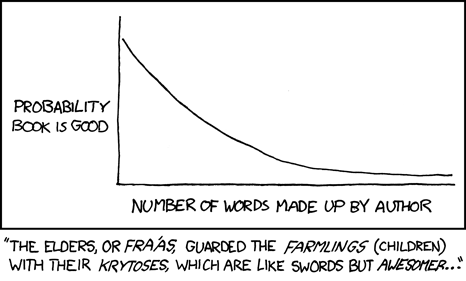Think of how you talk about other species in reality. There are no "women" or "men" among dogs, chicken, or ants. The words "man" and "woman" specifically denote human males and females.
But there are other terms that we use. We have specific names for the males and females of certain domestic and game animals. For other animals, such as eagles, we simply use the gender terms themselves and speak of a "male (eagle)" or "female (eagle)".
Apparently, when using words for representatives of a gender, we distinguish between humans and non-humans.
Therefore I think that when we meet an intelligent alien species, the terms that we will use to refer to their genders will depend on how we perceive them. If we feel that they are in some basic way similar to us and that we can live together with them equally in the same society – that, in other words, they are fundamentally "human" in a non-biological sense –, then we would eventually share a common language and speak of each other's genders using the same terms.
If, on the other hand, we felt that the aliens were completely unlike us and their society was so different from ours that integration was impossible – that they are "non-humans" –, then we would either use the terms that the aliens used for their genders, or a translation of those terms (if the language was unpronouncable to us), or create our own terms.
Insect genders are often called by their function. Bees, for example, are not called "males" and "females", but "workers", "drones", and so on. If the insects in your novel fall in the "unlike us"-category, they might be given names dependent on their function, instead of their chromosomes.
Given how some people do not perceive certain other humans as human and deny them the terms reserved for humans – for example, calling dark-skinned people "nigger" instead of "person" –, I am sure that even if much of humanity accepted the human-like aliens as peers, there would be many who would not see them that way and use derogatory words. Which words would aquire this racist, or rather "alienist", meaning, I don't know. Maybe it would be terms from the list of words we use to refer to animals, or we would use typical names, just like male Jews are sometimes referred to as "Abie" and male Italians as "Guidos".

